Soundproofing, also known as isolation, can change your life for the better, especially if you’re a light sleeper. You may be struggling with sleeping at night, as you hear many different loud noises from outside or maybe from the neighbours. This is the most common reason for getting your house soundproof.
Another reason to use soundproofing is to prevent the sound from getting into the bedroom when you sleep or into any room where you’re working and need the silence to concentrate. It’s also important for creating a recording room setting if you want to have a home studio.
Firstly, it’s important to identify what the sound is and what are the sources of noise that get into your house or room.
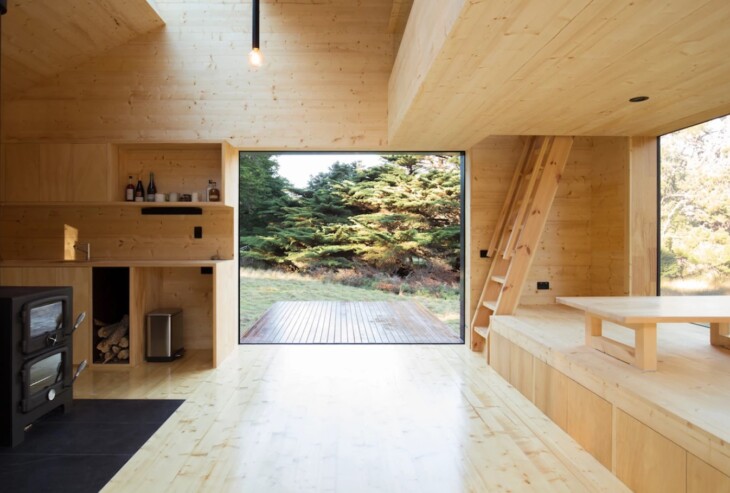
Source: gestalten
Contents
What Is Sound And How It Works
Sound comes from energy. It comes from the vibrating object that creates waves in the air around. The membrane located in our ears, called the eardrum, is able to detect these vibrations and register the frequencies in the brain as different types of sound.
Frequencies have different wavelengths. For example, bass frequencies have a long wavelength, while treble – short. The sound contacts different materials, which affect it in various ways. This is why it’s hard to block the sound of bass from a loudspeaker compared to the normal sound of the conversation.
The surfaces can also have a certain impact on the sound. Flat surfaces bounce the sound waves sound, which creates an echo if there are parallel walls. If the surface is soft and uneven, then the sound will not bounce off that much.
Reasons Why You Should Soundproof Your Home
The unwanted noise and sounds may annoy you and cause some stress, as you constantly hear loud noises. Reducing sounds in your home can improve your life because you will feel more relaxed in the quiet space. The loud noises may wake you up at night, which reduces the quality of your sleep.
It leads to sleep deprivation and affects your mood and general well-being. Having a quiet place where you can relax is essential for being healthy and happy.
Noises can also disturb you and distract you from your work or other important things that require concentration. This makes you angry and dissatisfied with your productivity. Soundproofing can help you get rid of the outside causes of your stress, so you can work in silence and get things done faster.
The soundproof is a significant investment that will serve you for many years. It’s worth soundproofing your home, as it makes your life less stressed and better.
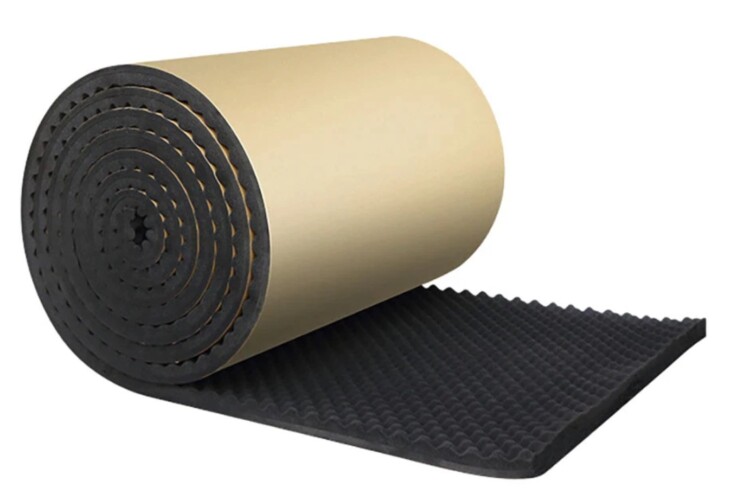
Source: AliExpress
How to Soundproof a Room
It’s not very difficult to do. Firstly, you need to determine the cause of the noise and how you want to control it. And soundproofing will help you to do that. With soundproofing, you can:
- Control the quality and nature of sound that is generated within your home
- Block the unwanted noise coming from the outside
This also perfectly describes the common techniques used in soundproofing, such as sound-absorbing and sound blocking.
Sound absorbing means that the sound gets soaked up, so it will not bounce from hard surfaces. Sound blocking is about using materials to reduce sound.
To effectively make your room soundproof, you should use a combination of those two techniques. This will ensure you have the best results. For these purposes, you can use sound blockers and use specific materials that absorb sounds outside of your rom as well as inside.
You can also add extra drywall. However, this requires some time and significant investments. But this is considered to be one of the most effective ways to soundproof your room. You can also secure your drywall with a muffling caulk that’s called a sound dampening compound.
Another option is installing sound-deadening drywall, which has a plastic polymer layer on the back surface. This drywall helps to cut the noise and is easy to install. You can also install resilient channels that will also soundproof your room. Resilient channels are Z-shaped metal strips between the drywall and wall studs.
The only downside of resilient channels is that you must strip the room down to bare studs. Only then you can install resilient channels. The advantage of using them is that they stop the sound waves from going through the walls.
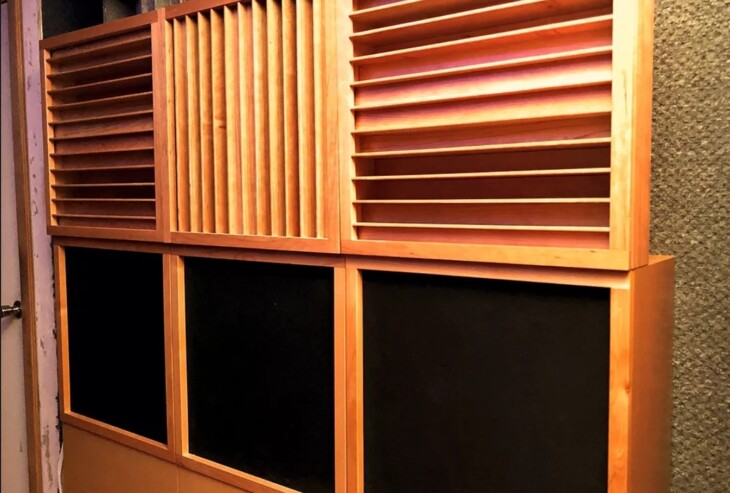
Source: Acoustic Fields
Tricks To Make Your Home A Quiet Place Fast
Soundproofing is always a great way to enhance your home and make it a better place to live. Many people may think that making your house soundproof requires a lot of money and even home reconstruction. But these tricks prove that it’s possible to do soundproofing without any significant investments but with quick and straightforward strategies.
Make Your Front Door Weatherproof
If the conversations and loud footsteps in the building hallway distract you when you’re at home, this is a sign that there are air gaps around your door. The best way to get rid of this issue is simply sealing the gaps. The sound travels on air, so if you see the light through gaps in your door, that’s how the sound gets in your apartment.
If there is a large gap under the front door, then you can just add a door sweep with a thick rubber strip to seal against the threshold. The good thing is that this also helps to keep bugs and dust out of your apartment. You can also seal the top and the sides of your door using foam weather stripping.
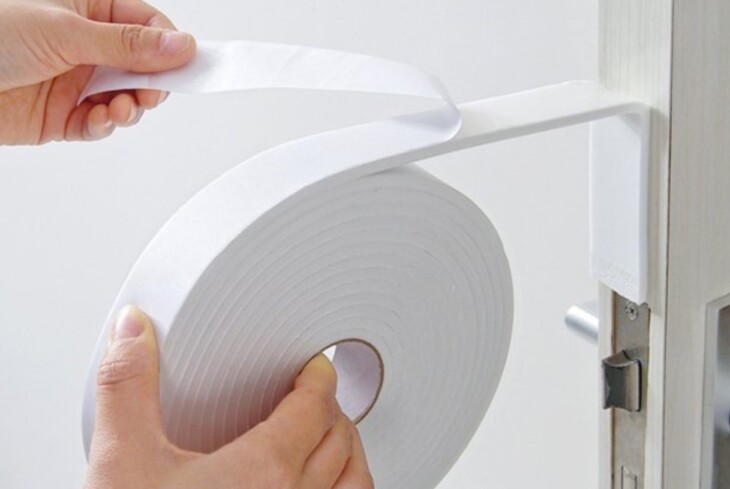
Source: Walmart
Soundproof The Door to Your Bedroom
Interior doors don’t have weather stripping, which is the main reason they let in so much sound. Here you can do the same as with the front doors. The gaps under the interior doors also let a lot of sound into the rooms. You can also use peel-and-stick foam rubber weather stripping that forms a tight seal. It’s not only affordable but also easy to use.
Another option is to install a door sweep or under-door draft stopper. For convenience, it’s better to get the ones that you can attach to the door. They usually come with an elastic band, so you don’t need to set them into place every time.
Reduce The Noise That Reflects Off Hard Surfaces
As mentioned above, the sound bounces off of different surfaces, like walls, floors, etc. Hard surfaces reflect and amplify sounds. This can add some noise inside your room. If you want to reduce the sound in your room, it’s recommended to cover the walls with something soft. This will help to absorb sounds, which will make your room quieter. Find out more about soundproofing walls at quietliving.co.uk.
You can use textile mats, blankets, quilts on your walls for those purposes. The thicker one you get, the more sound they will absorb.
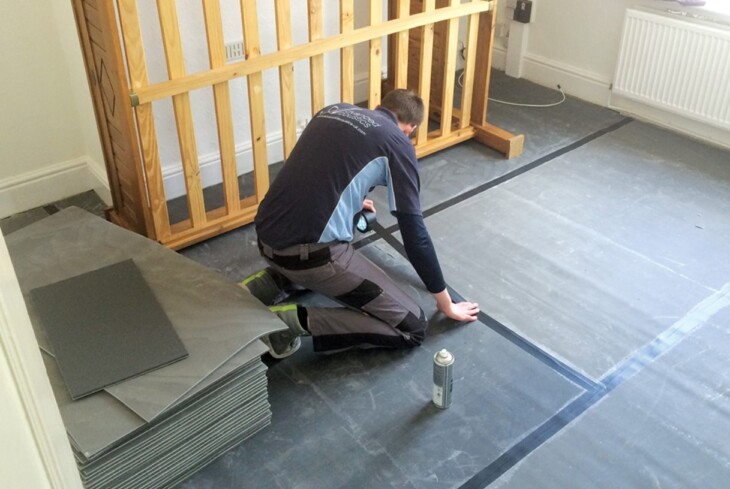
Source: www.podovi.org
If you have a squeaky floor, get a rug
A carpet helps to muffle the high-pitched floor squeaks. If you have hard-surface floors, like tiles, wood, you can get a thick rug. Here the same rule mentioned above applies: the thicker the carpet, the better it will absorb the sound.
Install a Bookcase
If your wall is thin, a great option would be to add a bookcase. At first, it seems odd, but bookcases can actually help to block the noise. It’s because massive materials and objects resist vibration, resulting in reduced sound transmission.
Here it would be best if you made a bookcase that is all the way to the ceiling, meaning all the edges are built-in fit to the wall, floor, and ceiling. This only works if there are no big air gaps, which let the sound into your room.
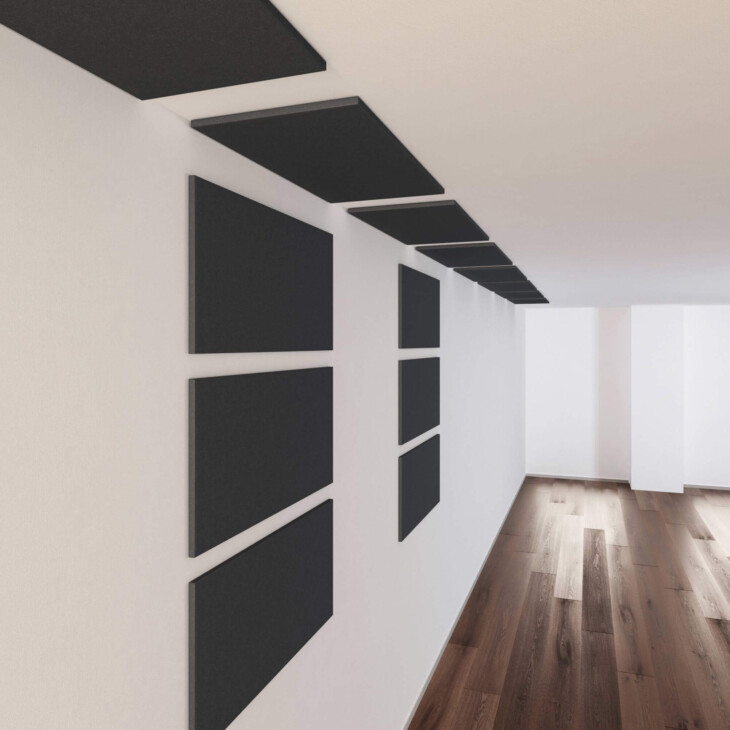
Source: Alibaba.com
Use Acoustic Panels
You can hang acoustic panels as boards or fabrics on your walls. Some of the acoustic panels stop the sound from bouncing off the surfaces, while others can block the noise from entering through the windows and doors.
Get Soundproof Curtains In Your Rooms
There are many options for acoustic curtains available, which are effective in absorbing the noises. These curtains are usually heavier than average. For example, acoustic curtains for one window can weigh 15 pounds.
Soundproof Your Window Using Inserts
Windows are one of the sources of loud noises and are not effective at blocking the sounds. Especially if you have old windows, then you will hear much more noise. The easiest way to reduce the noise is to cover the window with thick blankets. It’s not the best option; however, it works well.
If you don’t want to get acoustic curtains for your windows, you can install other noise-reducing curtains. Those that have heavy drapery are great at reducing noises.
The air gaps in the windows can let in your home many unwanted noises.
If you want to block these noises, you should try window inserts. They usually come as clear panes of glass or acrylic, which are installed over existing windows. They work very well at blocking out the outside noises.
Window inserts are designed to make a seal, which reduces the noise by at least 50%. You can also find the ones that conveniently pop out when you open the window.
